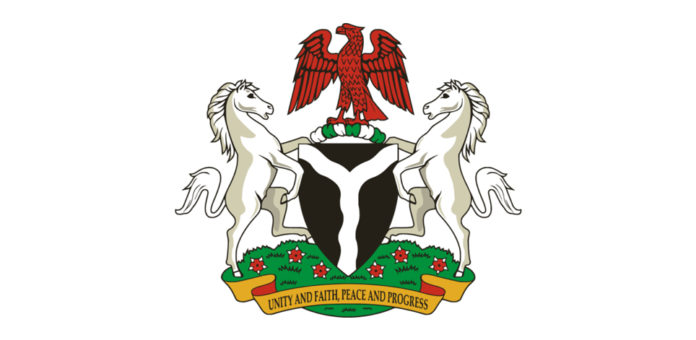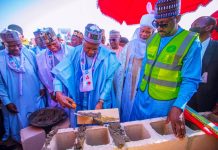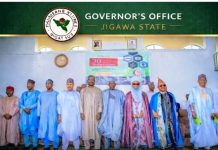FIC Report (Ondo State) – Presenting the budget, tagged “Budget of Economic Consolidation,” the Governor said the proposal was designed to stabilise ongoing programmes, strengthen fiscal discipline, and drive broad-based socio-economic growth across key sectors of the State.
Aiyedatiwa noted that the administration was compelled to review the 2025 budget downward from ₦698.7 billion to ₦490 billion due to shortfalls in expected donor inflows and revenue projections. He said updated data showed that only half of anticipated funds were likely to arrive, posing a significant threat to earlier targets, especially in the water sector.
Despite the fiscal constraints, the Governor highlighted what he described as “remarkable progress” across multiple sectors within the last year, attributing the achievements to prudent resource management and the cooperation of the State legislature.
Education Sector Records Major Investments
Aiyedatiwa disclosed that the education sector saw impressive gains, including the recruitment of 2,100 teachers, payment of ₦633.9 million WAEC fees for 23,048 students, full sponsorship of NABTEB examinations, and scholarship support totaling ₦350 million for 11,358 tertiary students. The Ondo State Oil Producing Areas Development Commission (OSOPADEC) also disbursed ₦286.7 million in bursaries to 4,837 students.
The State also executed massive infrastructure upgrades, renovating 134 primary schools at a cost of ₦6.7 billion and rehabilitating 60 secondary schools with ₦3.1 billion. Technical colleges were modernised across five local government areas, while OAUSTECH expanded from three faculties to seven schools with plans to establish a new School of Maritime Studies.
Health, Infrastructure and Social Protection Receive a Boost
In the health sector, the Governor reported the expansion of the Orange Health Insurance Scheme, with over 40,000 women and children continuing to benefit from the Abiyamo Maternal and Child Health Scheme. A total of 102 primary healthcare centres were upgraded under the World Bank-supported IMPACT Project with investments exceeding ₦7.2 billion.
Infrastructure development was equally robust, with significant progress recorded on major road projects including the dualisation of the Oke-Aro–Idanre Road, the Akungba–Ikare Road, and the 27.5km Okitipupa–Igbokoda Road. The Onyearugbulem–Shagari–Irese Flyover also neared completion. Additionally, about 60km of urban roads and 386km of rural roads under RAAMP were constructed or rehabilitated across several local governments.
Water projects advanced across the State, with rehabilitated facilities in Oke-Igbo, Oba Akoko, Okitipupa, Idoani, Ilutitun and Araromi-Obu. Progress also continued on the Owena Multipurpose Dam and the Owena–Ondo Water Supply Scheme, expected to serve six local government areas.
Agriculture, Power and Economy Drive the Reform Agenda
The agriculture sector recorded the acquisition of 26,000 hectares of land, rural market upgrades in three LGAs, construction of a modern farmers’ market in Akure, distribution of over two million cocoa seedlings, and livestock funding under the L-PRES programme.
On power development, the long-abandoned Omotosho 2×15MW plant was revived, solar mini-grids were operationalised in 30 communities, and new generation and distribution licences were issued through the State Electricity Bureau.
Other key achievements included large-scale dredging of waterways, the OD-CARES social support programme, which provided cash transfers to 10,550 households, job opportunities for 19,985 residents, and grants of ₦300,000 to ₦600,000 for 1,863 small businesses.
Social welfare efforts also saw ₦2.396 billion released to settle gratuities for 2016 and 2017 retirees, while the School Shuttle Scheme, abandoned since 2020 was restored with ₦701 million allocated for land and waterways transportation.
2026 Budget Priorities and Legislative Support
Unveiling the framework for the 2026 fiscal year, Aiyedatiwa said the proposal was anchored on macro-economic assumptions adopted in the NGF-endorsed MTEF and Fiscal Strategy Paper. He cautioned that the new VAT sharing formula may impact Ondo’s revenue due to its population and economic structure.
The 2026 budget carries a recurrent-to-capital ratio of 42.78% to 57.22%, which the Governor described as a commitment to completing ongoing infrastructure projects and preventing abandoned schemes.
Speaker of the House, Rt. Hon. Olamide Oladiji, applauded the timely submission of the budget proposal, noting that it allows adequate time for in-depth legislative scrutiny. He praised the Governor’s leadership and the administration’s continued support for the Assembly, especially the approval of the Consolidated Legislative Salary Scheme Fund for 2026.
Hope for a More Prosperous 2026
Governor Aiyedatiwa expressed optimism that the 2026 fiscal year would bring renewed progress and prosperity for the people of Ondo State. He urged lawmakers to give the Appropriation Bill thorough consideration, assuring them of his administration’s commitment to transparent and timely implementation.
The budget presentation was attended by top government officials, including the Deputy Governor, Secretary to the State Government, members of the Executive Council, and heads of key agencies.
Signed
Akinbiola Funmilayo
FIC Akure, Ondo State.
17/11/2025






